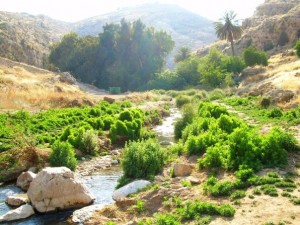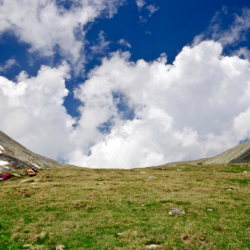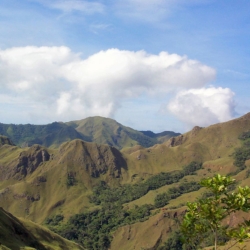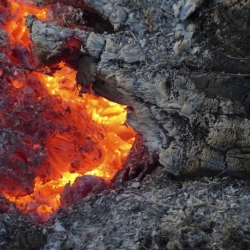This Psalm is straightforwardly post-exilic (for which see Sefer haWiki) but switches in its narrative perspective between before and after the return from Babylon, between gratitude and longing for return, helped by the profoundly non-linear mechanics of verbal tense and aspect in biblical Hebrew. The Psalmist chooses words associated with joy (s’ḥoq, rinah) that are tinged with other, more complicated emotions. Here’s what came out.
| Source (Hebrew) | Poetic translation (English) |
|---|---|
שִׁיר, הַמַּעֲלוֹת |
They used to sing a song On the steps of the Temple The very place wiped out, Put back together Stone by stone. |
בְּשׁוּב יְהוָה, אֶת־שִׁיבַת צִיּוֹן– הָיִינוּ, כְּחֹלְמִים |
Exile or return. Which is the dream? We left something behind But no one remembers what or where. |
אָז יִמָּלֵא שְׂחוֹק, פִּינוּ– וּלְשׁוֹנֵנוּ רִנָּה |
Our mouths are filled with laughter And a taste of mockery Our tongues with cries of joy Tinged by knowing, Somehow we are still in exile. |
אָז, יֹאמְרוּ בַגּוֹיִם– הִגְדִּיל יְהוָה, לַעֲשׂוֹת עִם־אֵלֶּה הִגְדִּיל יְהוָה, לַעֲשׂוֹת עִמָּנוּ– הָיִינוּ שְׂמֵחִים |
The miracle that people said could never happen Happened. We were as surprised as everyone else Happy and unprepared. |
שׁוּבָה יְהוָה, אֶת שְׁבִיתֵנוּ כַּאֲפִיקִים בַּנֶּגֶב הַזֹּרְעִים בְּדִמְעָה– בְּרִנָּה יִקְצֹרוּ |
Mysterious Being, Return our return. Restore our restoration. Bring us back to wherever we started And we’ll be strong Like stream beds in the desert Etched and hard but ready for the flow. Waters of weeping, saturating Sprouting cries of joy Fresh, green. |
הָלוֹךְ יֵלֵךְ, וּבָכֹה– נֹשֵׂא מֶשֶׁךְ־הַזָּרַע בֹּא־יָבֹא בְרִנָּה– נֹשֵׂא, אֲלֻמֹּתָיו |
I was the one who trudged along Sowing my trail of tears And now I think I’m ready For the golden sheaths they watered. |

“תהלים קכ״ו | Psalms 126 (Shir Hama’alot), a poetic translation by Shim’on Menachem” is shared through the Open Siddur Project with a Creative Commons Attribution-ShareAlike 4.0 International copyleft license.










Leave a Reply